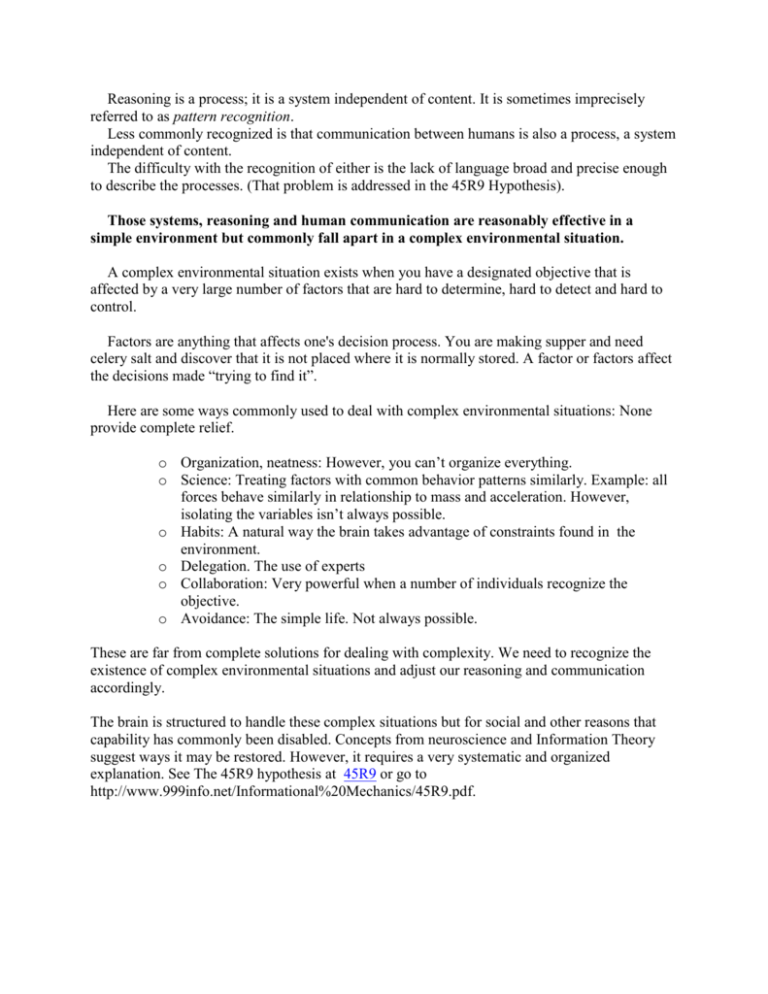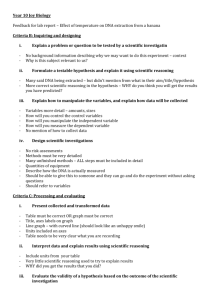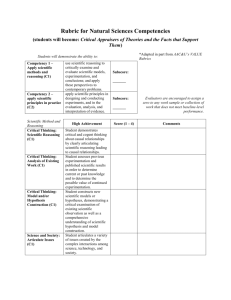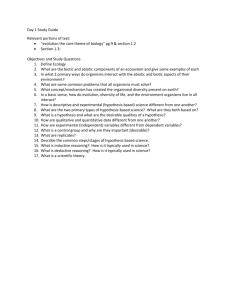Reasoning and Communicating in Complexity
advertisement

Reasoning is a process; it is a system independent of content. It is sometimes imprecisely referred to as pattern recognition. Less commonly recognized is that communication between humans is also a process, a system independent of content. The difficulty with the recognition of either is the lack of language broad and precise enough to describe the processes. (That problem is addressed in the 45R9 Hypothesis). Those systems, reasoning and human communication are reasonably effective in a simple environment but commonly fall apart in a complex environmental situation. A complex environmental situation exists when you have a designated objective that is affected by a very large number of factors that are hard to determine, hard to detect and hard to control. Factors are anything that affects one's decision process. You are making supper and need celery salt and discover that it is not placed where it is normally stored. A factor or factors affect the decisions made “trying to find it”. Here are some ways commonly used to deal with complex environmental situations: None provide complete relief. o Organization, neatness: However, you can’t organize everything. o Science: Treating factors with common behavior patterns similarly. Example: all forces behave similarly in relationship to mass and acceleration. However, isolating the variables isn’t always possible. o Habits: A natural way the brain takes advantage of constraints found in the environment. o Delegation. The use of experts o Collaboration: Very powerful when a number of individuals recognize the objective. o Avoidance: The simple life. Not always possible. These are far from complete solutions for dealing with complexity. We need to recognize the existence of complex environmental situations and adjust our reasoning and communication accordingly. The brain is structured to handle these complex situations but for social and other reasons that capability has commonly been disabled. Concepts from neuroscience and Information Theory suggest ways it may be restored. However, it requires a very systematic and organized explanation. See The 45R9 hypothesis at 45R9 or go to http://www.999info.net/Informational%20Mechanics/45R9.pdf.








